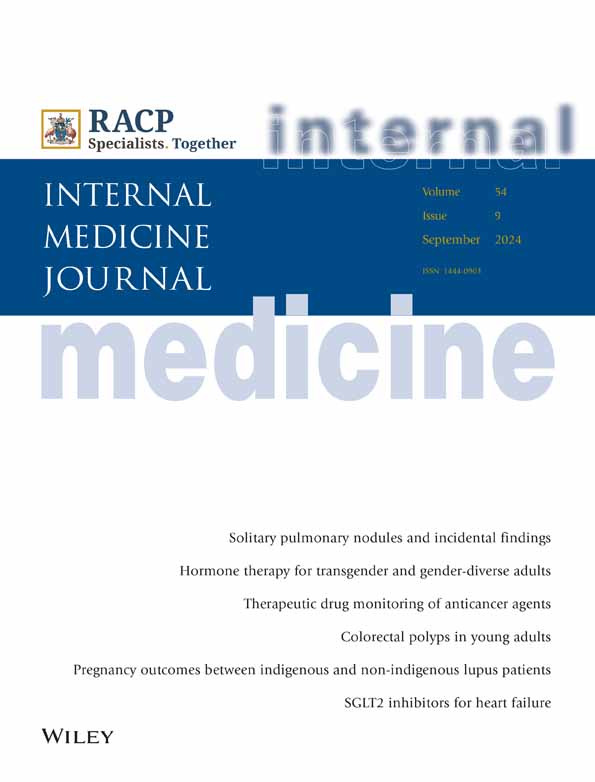Evaluation of early fluoropyrimidine toxicity in solid organ cancer patients: a retrospective observational study in Australia
Funding: None.
Conflict of interest: None.
Abstract
Background
Despite common global usage, fluoropyrimidine (FP; 5-flurouracil and capecitabine)-related chemotherapy toxicity is poorly reported in the literature, with serious toxicity ranging from 10% to 40% and early toxicity (within 60 days of exposure) quoted at 14%. Data reflecting the incidence of Grades 3–5 FP-related toxicity in Australian cancer patients is scant, despite the significant impact of toxicity on patients (hospitalisations, intensive care unit (ICU) admissions and even death).
Aims
This retrospective audit evaluated Grades 3–5 toxicities in a contemporaneous cohort of 500 patients receiving FP chemotherapies within the Hunter-New England Local Health District from June 2020 to June 2022. Data were extracted from public hospital records and oncology-specific e-records to determine rates of toxicity and associated hospitalisations, intensive care admissions and deaths that occurred within 60 days of first exposure to FP chemotherapy-containing regimens.
Results
One hundred and fifty incidents of Grades 3–4 toxicity in the first 60 days led to 87 patients presenting to hospital (87/500, 17.4%). The most common serious toxicities were diarrhoea (39.3%), nausea and vomiting (22.7%) and febrile neutropaenia (10%). Four patients were admitted to the ICU, and four patients died of toxicity. Within the first 60 days, 22.2% of patients required treatment delays, 21.4% required dose reductions, and 7.8% of patients ceased treatment because of toxicities.
Discussion and Conclusion
Our experience reflects international reports and is likely generalisable to the Australian population. These data are a basis to understand the potential benefits of precision medicine strategies such as pharmacogenomic screening to improve patient tolerability and the cost-effectiveness of FP chemotherapy prescribing.




